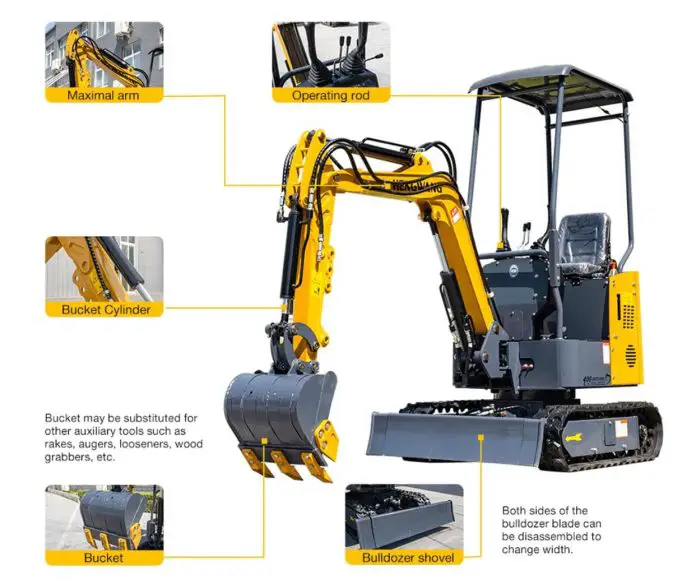Using specialist equipment on site is essential for the efficiency, safety, and success of various projects across industries such as construction, manufacturing, and logistics. Civil engineering projects are characterized by their scale and complexity, necessitating the use of specialized equipment to ensure efficiency, precision, and safety. From earthmoving to finishing, a wide range of machinery transforms raw materials into functional infrastructure.
The efficient and safe use of specialist equipment is paramount in modern construction and industrial operations. This guide discusses the critical aspects of incorporating specialist equipment into your operations, from selecting the right tools to ensuring safety and training.
Specialist Equipment in Construction
Specialist equipment encompasses a wide range of machinery designed for specific tasks. These can include:
- Heavy machinery: Excavators, bulldozers, cranes, loaders, and more, used for earthmoving, lifting, and material handling.
- Specialized tools: Welding equipment, cutting tools, surveying instruments, and other tools tailored for specific tasks.
- Industrial machinery: Manufacturing equipment, processing machinery, and other industrial tools for production processes.
Key Categories of Specialist Equipment in Construction
(1) Earthmoving Equipment: These are the equipment used for excavating, grading, and transporting earth materials. Some of the equipment used for that are:
Excavators: Versatile machines for digging, loading, and breaking materials.
Bulldozers: Powerful for clearing land, pushing materials, and creating embankments.
Loaders: For material handling and loading into trucks or other equipment.
Graders: Used for levelling and shaping surfaces, especially for roads.
Scrapers: Efficient for moving large volumes of earth over long distances.
Backhoe Loaders: Combine the functions of a backhoe and front-end loader.
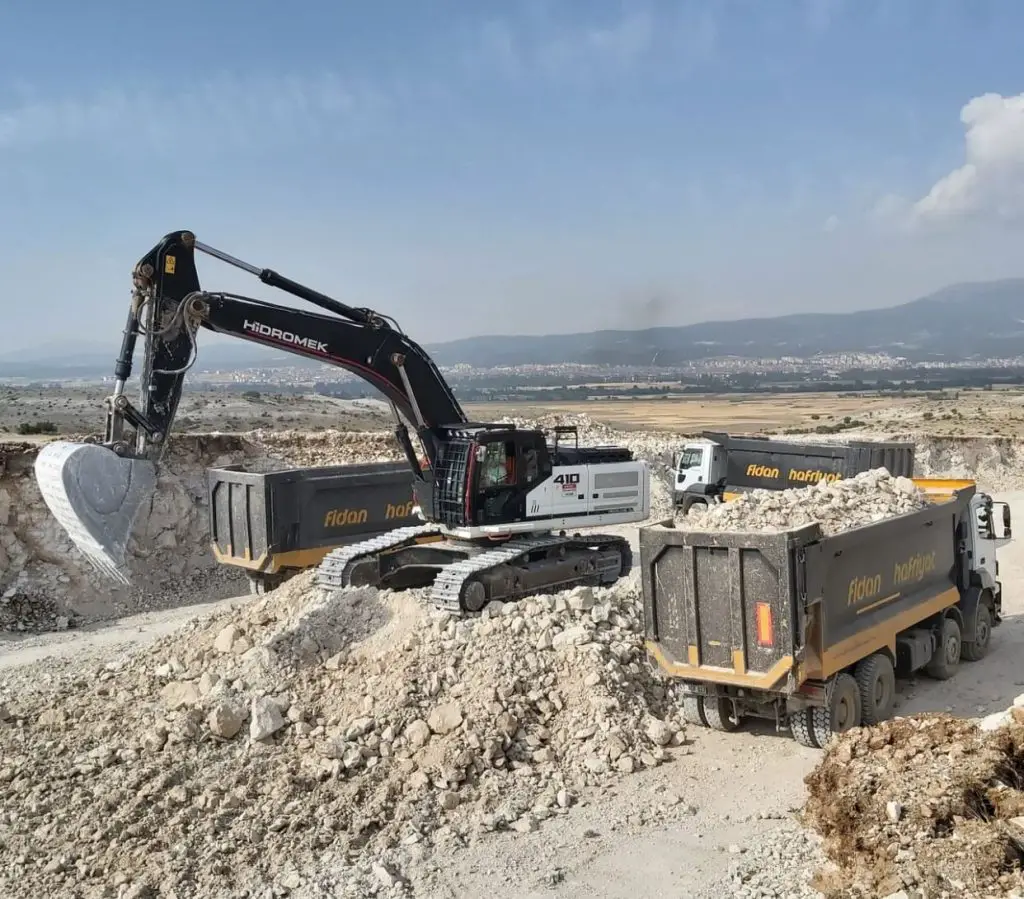
Every earth-moving equipment must be operated and supervised by well-trained personnel. This is due to the level of expertise required for accuracy, speed, and safety.
(2) Construction Equipment: These are the equipment utilized for building structures and infrastructure. Some of them include:
Cranes: For lifting and transporting heavy loads, including tower cranes, mobile cranes, and crawler cranes.
Concrete Equipment: Mixers, pumps, and finishers for concrete production and placement.
Asphalt Pavers: For laying asphalt layers on roads and parking lots.
Compactors: For compressing soil and asphalt to ensure stability.
Pile Drivers: For installing piles into the ground for foundations.
Tunnel Boring Machines (TBMs): For creating underground tunnels.
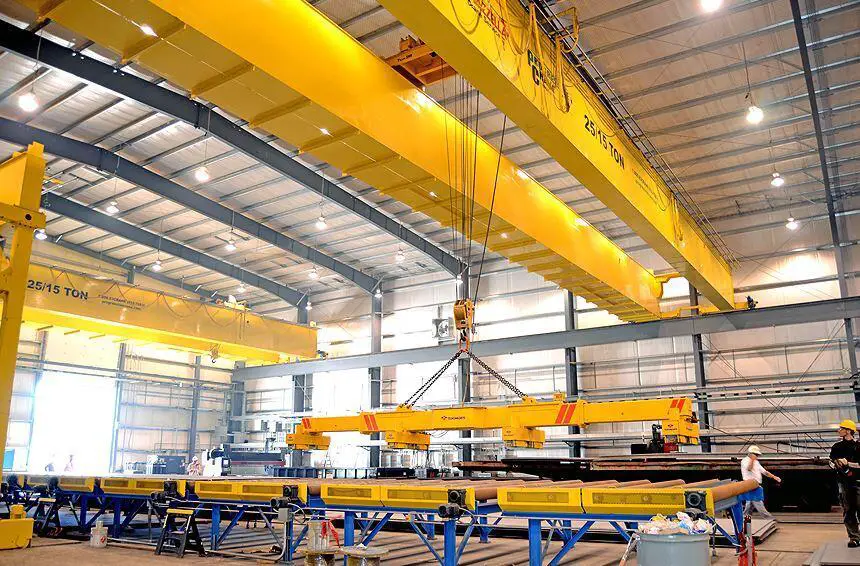
(3) Surveying Equipment: These are essential tools used by surveyors for measuring and mapping the terrain. Some of them are:
Total Stations: Electronic instruments for precise measurements.
Global Positioning Systems (GPS): For determining location coordinates.
Levels: For measuring vertical distances.
Theodolites: For measuring angles.
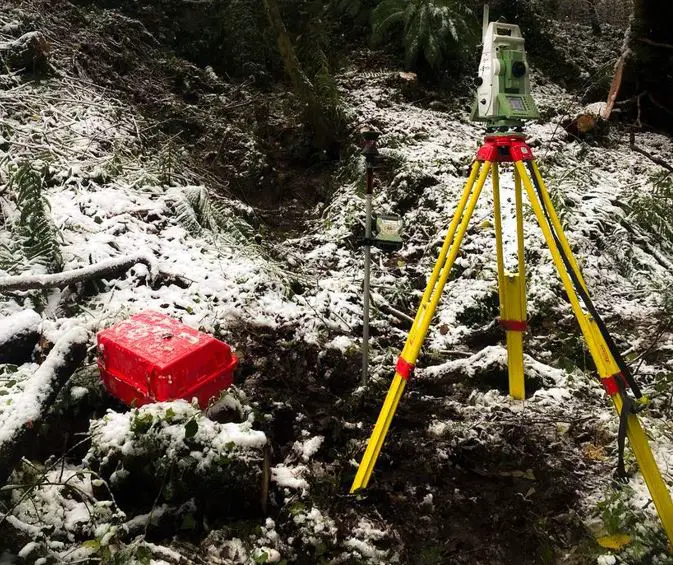
(4) Material Handling Equipment: These are used for moving materials around the construction site.
Forklifts: For lifting and transporting pallets and other materials.
Conveyors: For continuous material transportation.
Dump Trucks: For hauling large quantities of materials.
(5) Other Specialized Equipment: These are equipment used for other important aspects of construction work.
Demolition Equipment: Includes hydraulic breakers, excavators with demolition attachments, and concrete crushers.
Welding Equipment: For joining metal components.
Pumping Equipment: For water management, including dewatering pumps and concrete pumps.
Scaffolding and Access Equipment: For providing temporary working platforms.
Environmental Equipment: For monitoring and mitigating environmental impacts.
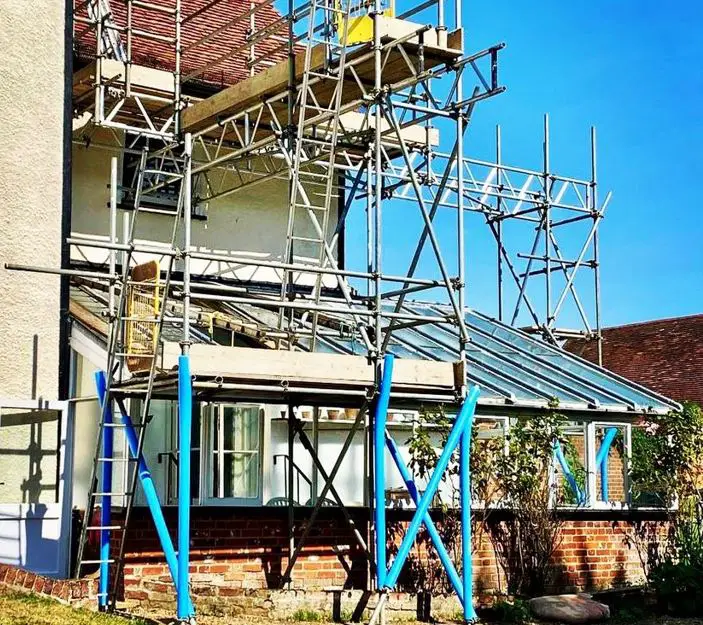
Guide to using Specialist Equipment
1. Choosing the Right Equipment
Selecting the appropriate specialist equipment for your project will move you more effectively towards achieving your objectives. Here are key considerations:
- Project Requirements: Different tasks require different tools, so identify what equipment will best meet your needs.
- Quality and Reliability: Invest in high-quality, reliable equipment from reputable manufacturers. Reliable equipment reduces downtime and maintenance costs, ensuring smoother operations.
- Compatibility: Ensure that the chosen equipment is compatible with your existing tools and machinery. This compatibility can prevent operational hiccups and enhance productivity.
2. Training and Certification
Operating specialist equipment requires skilled operators who are trained and certified to handle the tools safely and efficiently. Here’s how to ensure your team is well-prepared:
- Comprehensive Training Programs: Provide thorough training for your staff. This training should cover the operational aspects of the equipment, safety procedures, and troubleshooting techniques.
- Certification: Ensure that operators are certified to use the specific equipment. Certification not only verifies their skills but also complies with industry regulations and standards.
- Ongoing Education: Keep your team updated with the latest advancements and safety protocols. Regular refresher courses and training sessions can help maintain high standards of operation.

3. Safety Protocols
Safety is paramount when using specialist equipment on site. Implementing robust safety protocols can prevent accidents and ensure the well-being of your workforce:
- Safety Inspections: Conduct regular safety inspections to identify any potential issues. Addressing problems early can prevent accidents and equipment failure.
- Personal Protective Equipment (PPE): Ensure that all operators wear appropriate PPE, such as helmets, gloves, goggles, and safety boots. PPE provides an essential layer of protection against potential hazards.
- Emergency Procedures: Develop and communicate clear emergency procedures. Operators should know what to do in case of an equipment malfunction or accident.
4. Maintenance and Servicing
Regular maintenance and servicing of specialist equipment are crucial to ensure its longevity and optimal performance. Here’s how to manage maintenance effectively:
- Scheduled Maintenance: Adhere to a regular maintenance schedule as recommended by the manufacturer. Scheduled maintenance can prevent unexpected breakdowns and extend the equipment’s lifespan.
- Record Keeping: Maintain detailed records of all maintenance activities, repairs, and servicing. These records can help track the equipment’s performance and identify recurring issues.
- Professional Servicing: Engage professional technicians for complex servicing and repairs. Expert servicing ensures that the equipment is restored to its optimal condition.
5. Cost Management
Using specialist equipment can be expensive, but effective cost management strategies can help control expenses and improve return on investment:
- Budget Planning: Allocate a realistic budget for the purchase, operation, and maintenance of specialist equipment. Consider both initial costs, including finding shipping quotes from Shiply USA, and ongoing expenses.
- Leasing Options: Explore leasing options for expensive equipment. Leasing can be a cost-effective alternative to purchasing, especially for short-term projects.
- Efficiency Optimisation: Use equipment efficiently to maximise productivity. Proper training, maintenance, and operation can reduce wastage and operational costs.
6. Environmental Considerations
Incorporating environmental considerations into the use of specialist equipment is increasingly important. Here are ways to minimise the environmental impact:
- Energy Efficiency: Choose equipment that is energy-efficient and has lower emissions. Energy-efficient equipment reduces operational costs and environmental impact.
- Sustainable Practices: Implement sustainable practices, such as recycling and proper disposal of waste materials. Sustainable practices enhance your project’s environmental credentials.
- Compliance: Ensure that your equipment and operations comply with environmental regulations and standards. Compliance avoids legal penalties and promotes a positive corporate image.
Conclusion
Using specialist equipment on-site is a critical aspect of many industries, offering the potential to enhance efficiency, safety, and productivity. By carefully selecting the right equipment, ensuring comprehensive training, adhering to safety protocols, maintaining the equipment properly, managing costs, and considering environmental impacts, you can optimise the use of specialist equipment. These practices not only improve operational outcomes but also contribute to a safer and more sustainable work environment.

